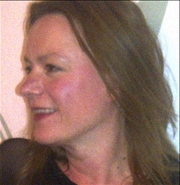Tutor HuntResources English Resources
Lets All Read John Donne!
Date : 30/01/2017
Author Information

Uploaded by : Caroline
Uploaded on : 30/01/2017
Subject : English
Ok, so what can a sixteenth century, grumpy priest tell us about our modern world? You might ask what earthly point is there to reading the dyspeptic poets of our past. Surely their`s was such a different world that nothing much they can say is relevant to us now.
And how wrong you would be. Just take these lines: `Mark but this flea` four words, each monosyllables a direct address, and notice how completely natural he sounds. He is speaking directly to his lover, and through the channels of poetry, us. The tone is witty, conversational and very clever. He asks his lover to look at a flea. It has `sucked` blood from her and him, `and in this flea our two beings mingled be`. Through Donne`s conceit the humble flea is elevated to a symbol of high status. Its life champions their own for it signifies what could be `their marriage bed`. We the reader feel we are eavesdropping and hearing the most intimate details of two people`s lives. We see the scene a woman, laughing with her lover, refusing to sleep with him, and hear him gently cajole her. In the third stanza the woman presses the flea between her two fingers. We are shocked, we think the poet will concede defeat, the woman has won. But no Donne turns the conceit back in on itself and says: `Just so much honor, when thou yield st to me/ Will waste, as this flea s death took life from thee.` So though the flea comes down to earth, it is just a flea. As its sacrifice really is of little account so is the woman`s maidenhood.
there is so much more to be said about that poem. How cunningly Donne uses what could be a grotesque image and sustains our interest. The lines: `Oh stay, three lives in one flea spare` are mocking, but the assonance of `stay` and `spare` charge the words with urgency. It is funny, but we almost believe him. Note also that these two people must be quite close to have a flea bite the both of them and we wonder what her response might be. MDonne`s poems always seem to me to have this quality where we feel that we are invited in to witness the most precious moments of a man`s life. We hear him depressed, in Nocturnal upon St Lucie`s day, madly in love in `the sunne rising` impatient in `the canonisation` and deeply questioning in `hymn to God my father`. In all the poems we are struck by how alive he is, how present. The conceits he uses never feel forced, we accept that a woman`s body is `my America` with joy, and moreover he seems to grapple with the conceits through the poems, twisting the idea of lets say a compass in the poem of that name, as if attempting to make sense of an increasingly obscure world. Donne became a priest later on in his life after his wife`s death, but this did not stop him from continuing to write what sounds to us like erotic verse, only this time his lover is God. His Holy Sonnets thrill with Donne`s attempt to relate to this divinity. His struggles to reconcile his vocation with his past express anxieties much like our modern world anxieties. We too have difficulty knowing how to fulfil our private selves within the public realm. So I would say that yes, Donne is very relevant. He ponders the deep questions that afflict us all and his poems develop the process of living with the contradictions. heHere are the last words of I believe his last poem, note the pun on his name. It is called `Hymn to God my father`. I think it is my favourite. I love its cadence and its soft muted tone. This is a man who wound down to death, at 59.I have a sin of fear, that when I have spun My last thread, I shall perish on the shore But swear by thyself, that at my death thy Son Shall shine as he shines now, and heretofore And, having done that, thou hast done I fear no more.This resource was uploaded by: Caroline
